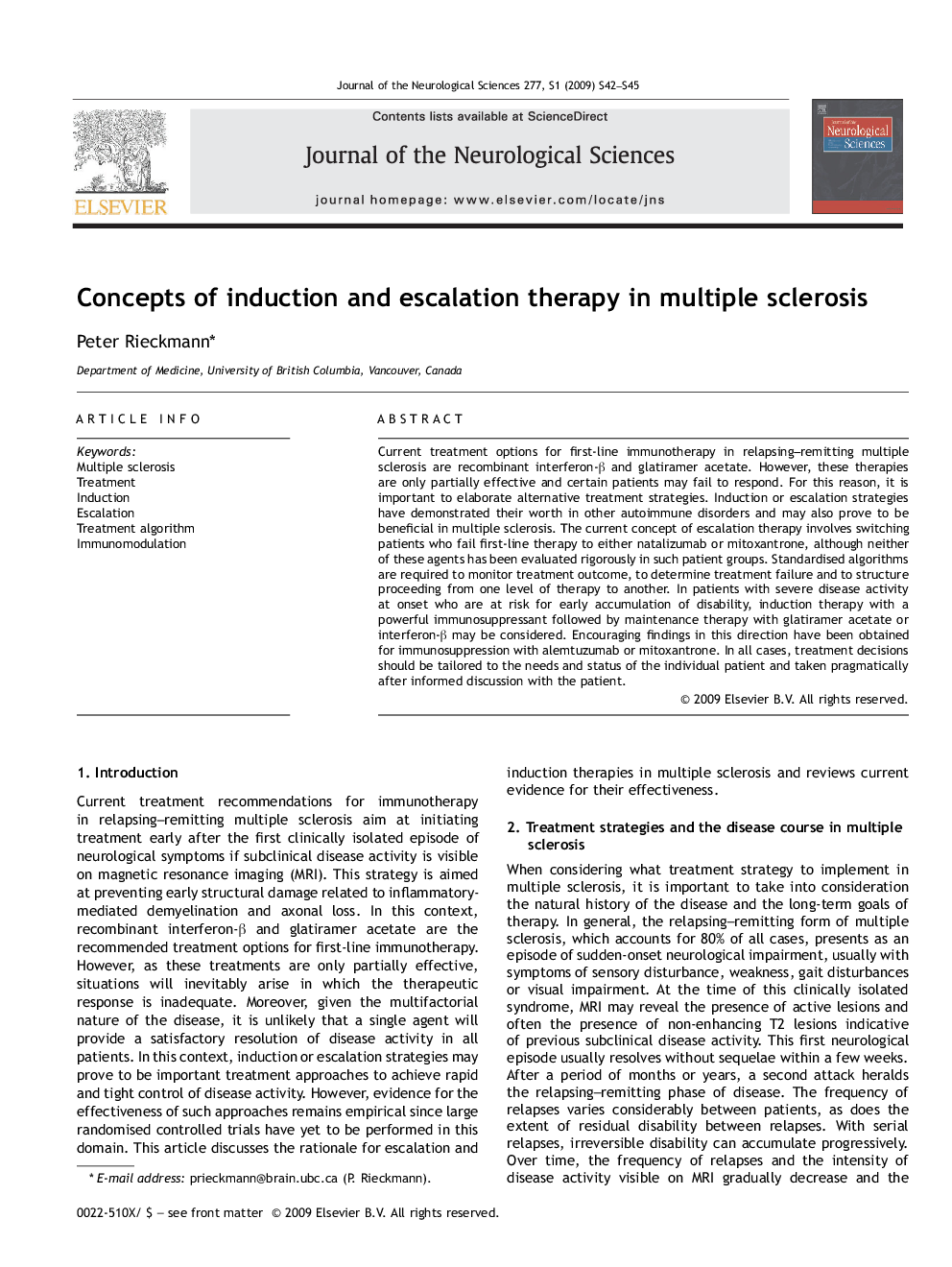| Article ID | Journal | Published Year | Pages | File Type |
|---|---|---|---|---|
| 1915577 | Journal of the Neurological Sciences | 2009 | 4 Pages |
Current treatment options for first-line immunotherapy in relapsing remitting multiple sclerosis are recombinant interferon-β and glatiramer acetate. However, these therapies are only partially effective and certain patients may fail to respond. For this reason, it is important to elaborate alternative treatment strategies. Induction or escalation strategies have demonstrated their worth in other autoimmune disorders and may also prove to be beneficial in multiple sclerosis. The current concept of escalation therapy involves switching patients who fail first-line therapy to either natalizumab or mitoxantrone, although neither of these agents has been evaluated rigorously in such patient groups. Standardised algorithms are required to monitor treatment outcome, to determine treatment failure and to structure proceeding from one level of therapy to another. In patients with severe disease activity at onset who are at risk for early accumulation of disability, induction therapy with a powerful immunosuppressant followed by maintenance therapy with glatiramer acetate or interferon-β may be considered. Encouraging findings in this direction have been obtained for immunosuppression with alemtuzumab or mitoxantrone. In all cases, treatment decisions should be tailored to the needs and status of the individual patient and taken pragmatically after informed discussion with the patient.
